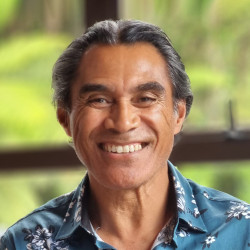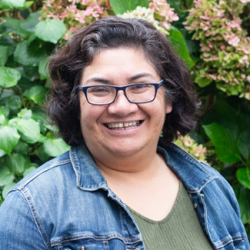
Le Niu Project – Strengthening and supporting Pacific education pathways and communities
Status
Completed: 1 June 2025
Project Details
The project aimed to empower and uplift Pacific communities, particularly those in underserved areas, by fostering community engagement, partnership, and education support.
Through a comprehensive analysis, we researched into the various aspects of the project, examining the enablers that contributed to its success, the methods employed for community engagement, and the outcomes achieved.
The overarching goals of the Le Niu project were to identify the enablers that facilitated community involvement, explore the methods employed to engage the community and analyse the responses received.
Aims
Discover how to establish and maintain a consistent relationship with Pacific communities.
- Identify the enablers. How were the community engaged? How were they brought together?
Identify and understand the things that make Le Niu a strong Pacific model
- What kinds of responses were made about short term and long-term community engagement, partnership, and community engagement?
Use recommendations from this research for similar Pacific projects in the future.
- What alignment is there between the information that was collected and the long-term plan for Pacific education and wellbeing?
- How will this teach, aid and support Pacific vocation and education?
Methodology
Le Niu research built off two fono, funded by the Ministry of Education’s Pacific Education Innovation Fund (PEIF), which ran in Northland in 2021.
A mixed-methods approach captured both quantitative survey data (using the survey that was developed for previous fono); and qualitative data collected at two new fono with Pacific communities in Kaitaia/Te Hiku and Whangārei/Tai Tokerau.
The survey and talanoa research (Vaioleti, 2006) allowed fono participants to tell their stories, give their views and ideas for the future of education in their region.
Qualitative data was gathered at focus group talanoa with these reports back being captured on video.
Team

Clark Tuagalu
Research Leader
Independent Researcher/Evaluator
Saylene Tanielu-Ulberg
Project Co-lead
Ako AotearoaStatus
Funding
$15,500.00 (excl GST)
Key Findings
Awareness and Initial Expectations:
- The findings indicate that participants became aware of the Le Niu project through various channels, including personal connections, social media, and community organisations. Future community engagement activities must leverage these diverse channels to ensure broad reach and accessibility.
- Understanding and managing initial expectations is crucial to aligning community members' interests with the project's scope and goals. Clear and transparent communication at the outset can help manage expectations and ensure that participants comprehensively understand the project's focus and potential outcomes.
- Clear communication can contribute to greater engagement and involvement from the community, fostering a sense of ownership and active participation.
Alignment with Community Goals and Values:
- The Le Niu project was generally perceived to align well with the goals and values of the community. The participants noted a strong alignment in addressing community issues and desired a centralised hub for Pacific peoples to gather and collaborate.
Communication and Information Sharing:
- The varied perspectives on communication and information sharing underscore the importance of clear and effective communication strategies in community engagement activities. Future projects should prioritise providing regular and concise updates to participants to enhance communication.
Effectiveness in Addressing Community Issues:
- The mixed views on the project's effectiveness in addressing community issues highlight the need for ongoing evaluation and continuous improvement. Future community engagement activities must incorporate robust evaluation mechanisms to assess their impact and effectiveness.
Inclusivity and Accessibility:
- The findings suggest that while the Le Niu project was generally inclusive and accessible, there is still room for improvement in reaching underrepresented or marginalised community members. Future community engagement activities should strive for greater inclusivity by actively seeking the participation of diverse groups and individuals.
Influence on Decision-Making:
- The findings highlight the potential of community engagement activities, like the Le Niu project, to shape decision-making processes. The project's ability to advocate for community needs, empower individuals, and contribute to policy development and planning demonstrates the impact of inclusive and participatory approaches. Future community engagement activities should foster meaningful involvement of community members in decision-making processes, ensuring that their voices are heard and respected.
Positive Outcomes and Success Stories:
- The Le Niu project's positive outcomes and success stories highlight the transformative power of community engagement activities. These achievements underscore the importance of providing resources, support, and platforms for individuals to pursue their aspirations and initiatives. Future community engagement activities should prioritise creating opportunities for community members to thrive and succeed.
Suggestions for Improvement:
- Participants provided valuable suggestions for enhancing the project, such as improving communication, addressing resource limitations, involving the community in decision-making, and maintaining regular engagement.
Key Recommendations for Future Community Engagement Activities
By prioritising these recommendations and implementing them effectively, organisations, and individuals can create a supportive and empowering environment for Pacific communities, driving positive change and addressing their unique needs.
Through these collective efforts, we can build stronger, more resilient, and equitable communities for the future.
Strengthen Relationship Building:
- Prioritise building solid relationships with community members by fostering trust, active listening, and open communication channels. This foundation of trust will enhance community engagement and ensure long-term collaboration.
Tailor Approaches:
- Recognise the diversity within the community and tailor engagement strategies to meet the specific needs, interests, and cultural contexts of different groups. Embrace a flexible, inclusive approach that respects and values all community members' unique perspectives and contributions.
Invest in Capacity Building:
- Provide opportunities for capacity building within the community by offering training, workshops, and resources to empower individuals and community organisations. Strengthening their skills and knowledge will enable them to participate in community initiatives actively.
Enhance Communication Strategies:
- Develop clear and effective communication strategies that reach all community members. Utilise various channels, including face-to-face meetings, digital platforms, social media, and community networks, to ensure information is accessible and disseminated widely.
Foster Collaboration:
- Encourage collaboration and partnerships between community members, organisations, and stakeholders. Create platforms and spaces for dialogue, idea-sharing, and joint decision-making, fostering a sense of ownership and collective responsibility.
Incorporate Continuous Evaluation and Feedback:
- Establish mechanisms for ongoing evaluation and feedback to monitor the effectiveness and impact of community engagement activities. Regularly assess the outcomes and adjust strategies accordingly to ensure continuous improvement.
Empower Underrepresented Groups:
- Prioritise the needs and voices of underrepresented and marginalised groups within the community. Take proactive measures to ensure their inclusion, participation, and representation in decision-making processes.
Promote Resource Mobilisation:
- Seek and secure financial and non-financial resources to support community engagement activities. Actively collaborate with funding agencies, government bodies, and private sector organisations to access resources that align with community priorities.
Foster Sustainable Partnerships:
- Build sustainable partnerships with relevant stakeholders, including local government, educational institutions, community organisations, and businesses. By forging strong alliances, stakeholders can share resources and maximise collaborative efforts for long-term community development.
- Collaboration enables sharing of knowledge, skills, and resources, leading to innovative solutions, increased efficiency, and a holistic approach to community development. By actively fostering these alliances, stakeholders can enhance their capacity to address community needs and drive positive change.
Share Best Practices and Lessons Learned:
- Encourage exchanging knowledge and spreading successful strategies from productive community engagement activities. Facilitate networking opportunities and platforms where communities can learn from one another's experiences and replicate practical approaches.
This report presents the key findings derived from the research questions explored in the Le Niu project.
PDF, 427Kb
- 1 June 2025